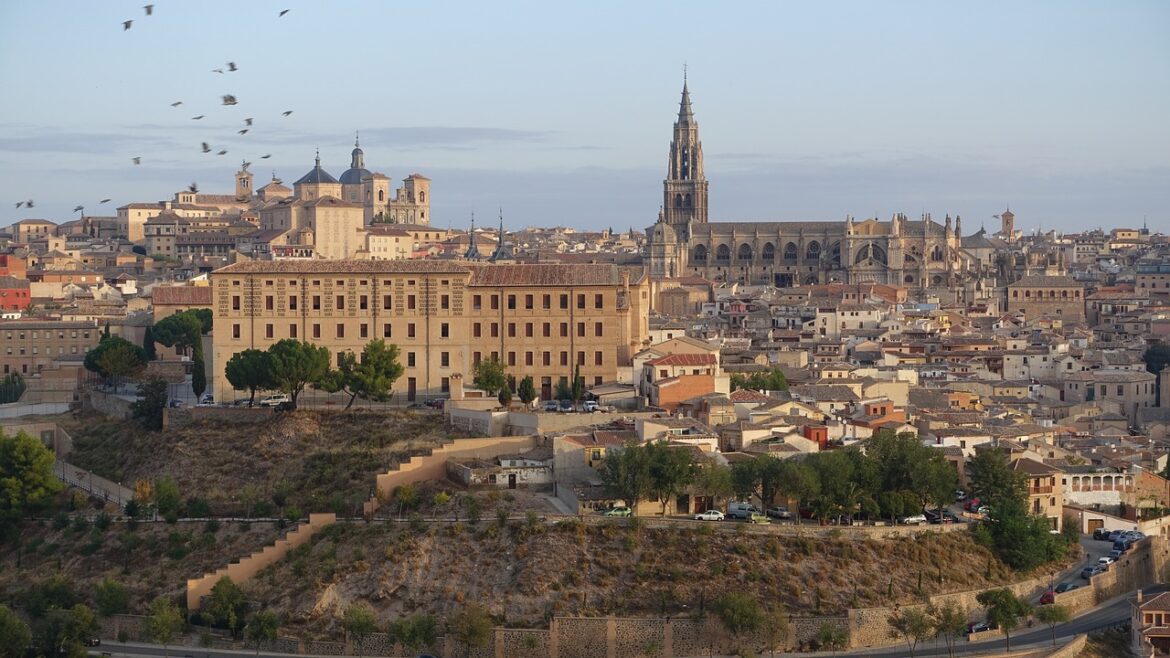During the 16th and 17th centuries the kings of Spain directed some of the riches that were coming out of the Americas into art. They brought paintings and sculptures from the best artists in Belgium, Italy, Spain, the Netherlands and Germany. Spain now has one of the largest art collections in Europe, it has also produced great artists such as Dalí, Picasso and Velázquez. If you are an art lover, you have to study in Spain!
The following is a list of some of the most famous museums, that house the biggest collections in Spain however, Spain is also full of amazing, smaller museums that are out there waiting for you to discover them!
Picasso Museum, Barcelona
The Picasso Museum in Barcelona contains one of the most comprehensive collections of the Spanish artist’s works, with a special focus on his early years. Opened in 1963, the museum is housed in five adjacent medieval palaces in the La Ribera area of Barcelona. Its permanent collection includes Picasso’s early major works The First Communion (1896) and Science and Charity (1897). The museum is split into different areas, including the Blue Period, the early years, training, works focusing on Barcelona and Las Meninas (Picasso’s reinterpreting of Veláquez’s famous work).
Museo del Prado, Madrid
The Museo del Prado first opened to the public as a painting and sculpture museum in 1819 and is the main Spanish national art museum, located in central Madrid. It is generally considered to have one of the world’s finest collections of European art, ranging from the 12th century to the early 20th century. The museum’s main pieces came from the royal collection, which included such paintings as The Garden of Earthly Delights by Bosch, together with works by El Greco, Velázquez, Reubens and Goya. These days, the Prado’s collection comprises of around 8,600 paintings and over 700 sculptures. Visit here and you will see great works by Spanish masters Diego de Velázquez (whose Las Meninas is one of the Prado’s most famous pieces) and Francisco de Goya, whose Black Paintings are exhibited in their own room for the definitive immersive experience.
National Art Museum of Catalonia, Barcelona
The National Art Museum of Catalonia is situated in the grand Palau Nacional of Montjuïc, built for the 1929 International Exhibition. Ever since the gallery opened in 1934, it has gradually accumulated works that embrace over 1,000 years of art, from medieval collections right up to modern day contemporary photography and artwork. Tourist attractions include the collection of 11th to 13th century Romanesque mural paintings (the biggest and oldest in Europe) and its collection of Catalan modernism, like Barcelona’s most famous artist and architect, Antoni Gaudí.
Valencian Institute of Modern Art, Valencia
The Valencian Institute of Modern Art, opened its doors in 1989 and was Spain’s first centre for modern art. Its collection contains over 11,000 works that span the 20th century, and all the continents. The collection is separated into eight different themes, concentrating on various areas in the development on contemporary art. One theme focuses around the Catalan sculptor Julio González, an important influence at the launch of contemporary art in Spain and Valencia who was well known for modern sculptures made from iron. Other themes comprise artists like Marcel Duchamp, Man Ray and the Dadaists and photographers Robert Frank and Cindy Sherman.
Reina Sofía, Madrid
Reina Sofía is Madrid’s museum of contemporary art and it was named after the former Spanish queen. The museum opened in 1992 and includes many pieces by 20th century Spanish artists like Pablo Picasso and Salvador Dalí. The highlight for most people is Guernica, Picasso’s intense portrayal of the bombing of the Basque town (Guernica) during the Spanish Civil War. The gallery also showcases the work of many international artists, such as Damien Hirst, Paul Klee, Francis Bacon, Mark Rothko and Diego Rivera.
Thyssen-Bornemisza Museum, Madrid
The Thyssen-Bornemisza started out as the private collection of Heinrich Thyssen, a German-Hungarian art collector and entrepreneur. Thyssen brought many European pieces of art from American millionaires who were struggling during the Great Depression. The collection was later developed by his son, who, after marrying Spaniard Carmen Cervera in 1985, moved most of the collection to Spain. The Thyssen-Bornemisza museum opened to the public in 1992 and now its collection spans eight centuries of painting. Artists represented include Caravaggio, Rubens and Rembrandt, impressionists Monet, Renoir and Degas, and modernists Kandinsky, Edward Hopper and Jackson Pollock.
Guggenheim Museum, Bilbao
The Guggenheim Museum in Bilbao was designed by Frank Gehry. It opened in 1997 and became an icon of modern architecture, its glass and titanium curved, boat-shaped structure is a nod to the city’s industrial and seafaring heritage. The Guggenheim may be more famous for its exterior but it is a centre for contemporary art, including temporary and permanent displays. Outside, you will find sculptures including Puppy by Jeff Koons and Maman, a giant spider, by Louise Bourgeois. Inside, the buildings high ceilings are a perfect setting for large scale works, such as Richard Serra’s installation The Matter of Time.
Sorolla Museum, Madrid
Madrid has many hidden gems and one of them is the Sorolla Museum. The Sorolla Museum is solely dedicated to the life of Spanish artist Joaquín Sorolla. The artist’s former home and studio has been converted into this museum and it contains the best collection of his works in existence. The pieces are displayed alongside objects he collected throughout his life. Sorolla is mainly known for his landscapes, portraits and works showing historical and social themes. As well as the artwork, another highlight of the museum is its beautiful gardens, a secret oasis in the heart of Madrid.
Dalí Theatre-Museum, Figueres
The Dalí Theatre and Museum is a museum dedicated to the Spanish surrealist painter, Salvador Dalí, in his home town of Figueres, Spain. Dalí is also buried in the museum, in a crypt below the stage.
When Dalí discovered the old theatre, he thought it would make a wonderful museum so he set about shaping it into a place to display all his artistic whims. The entire contents of the gallery were designed by Dalí to draw visitors into his unique and surreal world. The collection is comprehensive, from his early beginnings, to paintings and sculptures made in his later life.
Pompidou Centre, Málaga
Far from its hot, beachy image, Málaga is one of Spain’s most exciting artistic hubs. The city has a host of fantasic galleries to explore, including an outpost of Saint Petersburg’s Hermitage Museum and a pioneering outpost of Paris’ Pompidou Centre. Málaga’s Pompidou Centre is located by the city’s port area, in a multicoloured cube. Its permanent collection includes artists such as, Francis Bacon and Marc Chagall and the city’s most famous son, Pablo Picasso.



